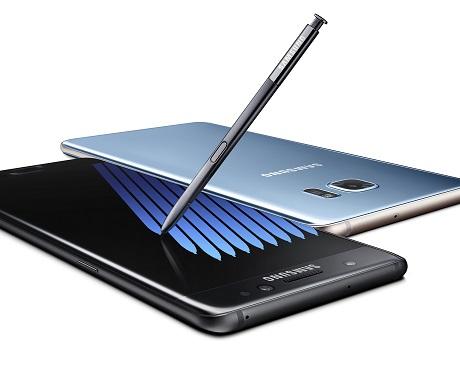Samsung Galaxy Note 7 Killed Following Fire ReportsSamsung Galaxy Note 7 Killed Following Fire Reports
A day after Samsung told partners and carriers to stop selling its flagship Galaxy Note 7, the company released a statement that it would end production all together. It's a huge blow for the South Korean tech giant as the holiday shopping season approaches.


10 Ways To Doom Your Next Mobile App
10 Ways To Doom Your Next Mobile App (Click image for larger view and slideshow.)
The Samsung Galaxy Note 7 is no more. The electronics giant has put its flagship device out of its misery.
A day after the South Korean tech giant sent mixed messages about its plans for the Galaxy Note 7 after more reports about the devices igniting, Samsung issued a statement that it would end production of its flagship device.
The Wall Street Journal first reported on Samsung's decision on Tuesday, Oct. 11, quoting the company as saying, "Taking our customer's safety as our highest priority, we have decided to halt sales and production of the Galaxy Note 7."
Samsung also filed paperwork with regulators in its native South Korea that stated that it had ended production due to safety concerns about the device.
Charles King, the principal analyst at Pund-IT, noted that Samsung's issues with the Galaxy Note 7 are akin to other tech recalls of the past, including Dell's recall of 4 million laptops due to faulty Sony batteries, overheating issues with Microsoft's Xbox, and even Apple's infamous "antennagate."
"Samsung's issue is similarly serious, especially since it led the company to recall and retire is newest flagship handset," King wrote in an email to information. "It's also good to remember that none of those previous issues was fatal for the companies involved. But it will behoove Samsung to track down and fix the problem is transparently as possible."
The news follows a nearly a week of controversy about the Galaxy Note 7, which had already been under scrutiny since Samsung recalled about 2.5 million of the devices in early September. The company worked with the US Consumer Product Safety Commission, which noted that "the lithium-ion battery in the Galaxy Note7 smartphones can overheat and catch fire, posing a serious burn hazard to consumers."
Samsung went on to replace the faulty smartphones and look into the issue, but the relative calm that followed was short lived.
During the first week of October, reports of fires spread, including one that affected a Southwest Airlines flight where a passenger's replacement Note 7 reportedly caught fire. After that, major US carriers, including Verizon Wireless, AT&T, and T-Mobile announced that they would stop selling the smartphone.
Samsung did not appear to issue any immediate reaction, but soon after, media reports from South Korea indicated that electronics giant has stopped production. However, on Oct. 10, the company issued a statement asking its partners and carriers to stop selling the Galaxy Note 7 as it looked into the latest issues of fire.
"We are working with relevant regulatory bodies to investigate the recently reported cases involving the Galaxy Note7," according to Monday's statement. "Because consumers' safety remains our top priority, Samsung will ask all carrier and retail partners globally to stop sales and exchanges of the Galaxy Note7 while the investigation is taking place."
A few hours after that statement was released, Samsung pulled the plug on production.
The fallout from this sequence of events is still unfolding. Bloomberg reports the company's stock has taken a major hit. It's not clear whether any Samsung executives will take personal responsibility for the trouble with the Galaxy Note 7.
[Read about BlackBerry's decision to stop producing smartphones on its own.]
Then there are the wider problems for the global smartphone market. Earlier this month, Gartner reported that total mobile sales will slide about 1.6% this year, although smartphone sales will likely increase 4.5%. Still, that is a slower pace than the past years.
The report found that many users were willing to stick with "good enough" smartphones instead of updating to newer devices. That market shift affecting Apple and the release of its iPhone 7 in September was not expected to boost sales much this year, especially since the company is working on what's considered to be a superior phone for 2017.
How much the Galaxy Note 7, which Samsung positioned as a premium device to compete with the iPhone 7 and the iPhone 7 Plus, would have boosted the market is hard to determine. But it seems reasonable that it would have given not only the company a boost, but the overall market as well. Now Samsung will go into the holiday season without its newest device and no clear plans for a replacement.
However, Jitesh Ubrani, a senior research analyst for IDC, wrote in an email to information that he doesn't foresee any long-term issue.
"For the mobile market in general, we don't foresee any major changes or reductions in the market size as consumers are likely to move to other Android phones (even those from Samsung) and iPhones," Ubrani wrote. "However, Samsung does stand to lose some share in the short term, not only because they've stopped the sale of the Note 7, but also because the brand has been momentarily tarnished."
(Editor's note: This article was updated with additional comments from IDC.)
About the Author
You May Also Like






